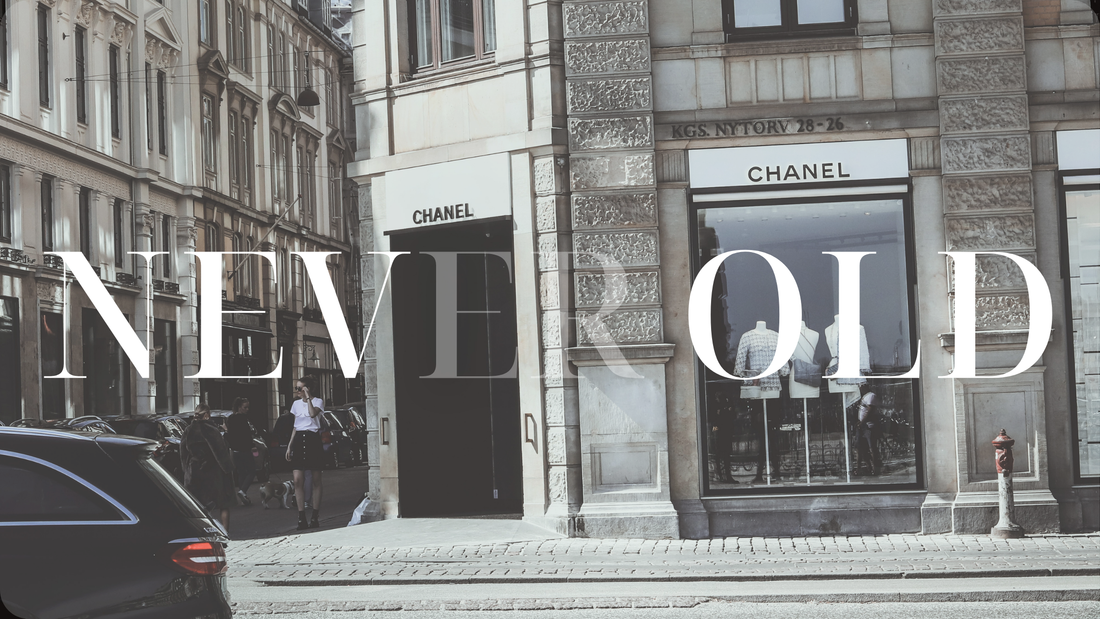
The Next Big Innovation in Fashion Won't Be on the Runway -- Part 1
Share
What happens when traditional business models meet new market dynamics? Today's fashion industry is finding itself in exactly that pickle. Excess production, changing consumer sentiment, raw material scarcity, and new sustainability regulations are creating a slew of challenges for the fashion industry. Whether manufacturers target fast-fashion customers or high-end luxury clients—the challenges are the same.
Industry leaders are looking to innovation, specifically in the area of sustainability, for solutions. Younger consumers have clearly indicated a desire for sustainable products. But how do you maintain a heritage of superior quality and style while meeting resource, compliance, and traceability constraints?
Chanel takes a bold step
The House of Chanel is committed to finding out. In June, the venerable fashion icon announced its new recycling business, Nevold (short for "never old") as a bold step forward. Nevold is focused on finding long-term, generational solutions to multiple challenges:
• Increasing scarcity of raw materials: Cotton, wool, cashmere, silk, and leather represent 80% of Chanel's materials. It's getting more difficult to acquire sufficient quantities at the level of quality required by the luxury brand. Many materials have limited traceability. Environmental degradation and geopolitical tensions also affect supplies.
• Overproduction: Although fast fashion is blamed for high quantities of waste, luxury brands also contribute their fair share. On the one hand, overproduction maximizes production efficiency and sales potential. On the other hand, disposing of it is complicated. Industry-leading luxury conglomerates have reached unsold inventory levels reaching billions of dollars in value. In many countries, destroying it is illegal, but disposing of it through heavily discounted channels also weakens companies' brand images.
• Unused materials: Some materials simply don't make it into final products for any number of reasons. They end up as deadstock that must be stored or discarded. Others reach the end of their first life but can be re-used.
Getting to circularity at scale
Instead of focusing on reselling or upcycling finished products, Nevold is investing in waste management and recycling ventures to develop recycled materials at scale. As a business-to-business platform, Nevold tackles the resource scarcity problem strategically. The company recovers Chanel's waste, as well as takes waste from other companies to produce recycled materials from fabric offcuts, unused textiles, and unsold items.
Chanel has long been experimenting with hybrid materials composed of recycled and virgin materials that meet luxury manufacturing' specific needs. For example, it has introduced recycled threads in its iconic tweed fabrics. It has processed leather waste to be used as replacements for plastic components in bags and up to 50% of certain footwear lines.
Now Nevold is taking its efforts to the next level with three key operations:
• L’Atelier des Matières: Created by Chanel, this company dismantles end-of-life products and sorts materials by type. In addition to handling Chanel's own waste, L'Atelier des Matières provides deep industry expertise to other fashion brands. It recycles unused materials and unsold products, provides eco design and sourcing optimization consulting, and creates end-to-end upcycling solutions for brands.
• Filatures du Parc: This leading European wool spinning mill is known for its recycled yarns. More than 80% of its fibers come from recycled, end-of-life textiles and it produces 500 tons of yarn annually.
• Authentic Material: This is a natural materials factory that specializes in the recovery of waste leather. The company's extensive expertise lies in developing physicochemical methods and designing new materials recipes. They effectively transform leather scraps into new materials that don't compete with traditional leather, offering an effective solution for managing leather waste.
• Other partnerships: Nevold also partners with other organizations, such as the University of Cambridge and Politecnico di Milano.
Playing our part
Chanel wants to make Nevold a leader in helping the industry rethink product lifecycles and develop new skills that contribute to a circular economy. At DandyLion, we're excited to see the fashion industry begin to invest in strategic efforts to improve sustainability at scale. Meanwhile, we continue to contribute by incorporating sustainable practices at every level of our business.
In Part 2 of this blog, we'll look at how another big-name fashion house, LVMH, is tackling the same challenges.
